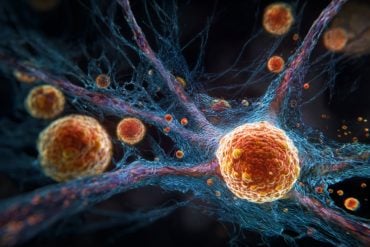Summary: Study reports losing just one night of sleep can increase cravings for junk foods.
Source: SfN.
One night of sleep loss can increase the desirability of junk foods, finds a study of healthy weight young men published in Journal of Neuroscience.
Building on insights from behavioral economics and endocrinology, Julia Rihm and colleagues set out to untangle the relative contribution of decision-making processes and hormones to food choices following sleep deprivation. Participants visited their laboratory for a standardized dinner on two separate nights. At each visit they were instructed to either return home after the meal to sleep normally or to spend the night at the lab, where they would be kept awake. Their desire for snack foods, brain activity, and hormone levels were assessed the next morning after each night of sleep or total sleep deprivation.

The researchers found sleep loss increased the subjective value of food compared to non-food items independent of hormonal effects. Their neuroimaging results revealed increased activity in a circuit involving the amygdala and hypothalamus after sleep deprivation. These data suggest one way a lack of sleep can promote overeating and obesity risk.
Funding: Study funded by Deutsche Forschungsgemeinschaft.
Source: David Barnstone – SfN
Publisher: Organized by NeuroscienceNews.com.
Image Source: NeuroscienceNews.com image is credited to Rihm et al., JNeurosci (2018).
Original Research: The study will appear in Journal of Neuroscience.
[cbtabs][cbtab title=”MLA”]SfN”Unraveling the Link Between Obesity and Sleep.” NeuroscienceNews. NeuroscienceNews, 17 December 2018.
<https://neurosciencenews.com/obesity-sleep-10357/>.[/cbtab][cbtab title=”APA”]SfN(2018, December 17). Unraveling the Link Between Obesity and Sleep. NeuroscienceNews. Retrieved December 17, 2018 from https://neurosciencenews.com/obesity-sleep-10357/[/cbtab][cbtab title=”Chicago”]SfN”Unraveling the Link Between Obesity and Sleep.” https://neurosciencenews.com/obesity-sleep-10357/ (accessed December 17, 2018).[/cbtab][/cbtabs]






